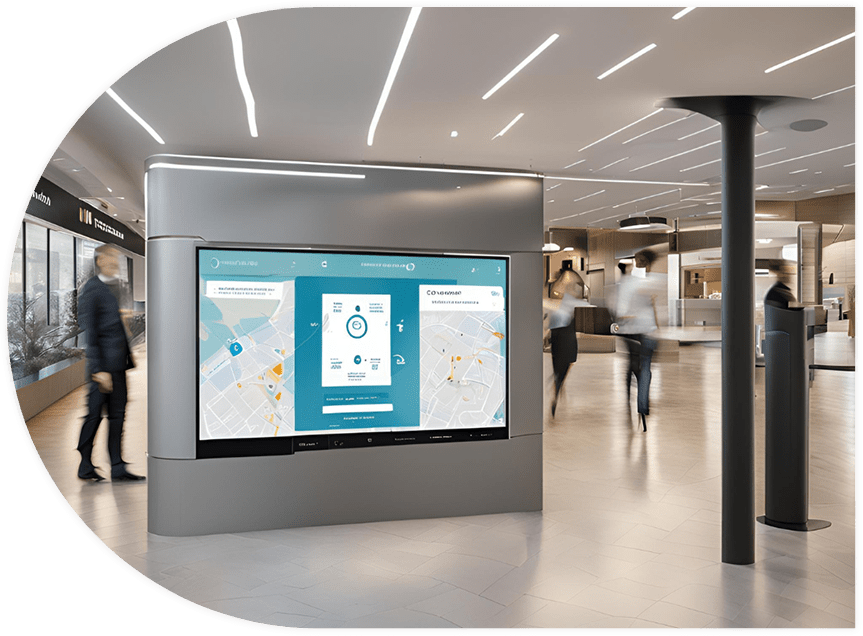
Navigational Renaissance: Unveiling the Sophistication of Digital Wayfinding and Interactive Software Solutions
Step into the Navigational Renaissance with us and uncover the power of digital wayfinding and interactive software solutions. Just like a skilled cartographer, these cutting-edge technologies map out a seamless path for users in any environment – from large-scale events to sprawling campuses. With mobile-friendly options, visually engaging content, and effortless navigation, these systems have become an essential tool in our ever-evolving technological landscape. And the best part? The flexibility and customization opportunities make it a powerful branding tool for organizations. Join us as we explore the possibilities and unlock the potential of this game-changing technology.
Exploring the Essence of Digital Wayfinding
The Critical Role of Digital Wayfinding in Modern Spaces
In today’s fast-paced world, digital wayfinding systems are not just a luxury but a necessity. These sophisticated tools enhance how individuals interact with complex environments like malls, hospitals, and large event spaces. By providing clear directions and real-time information, these systems ensure that navigating through sprawling spaces is no longer a daunting task.
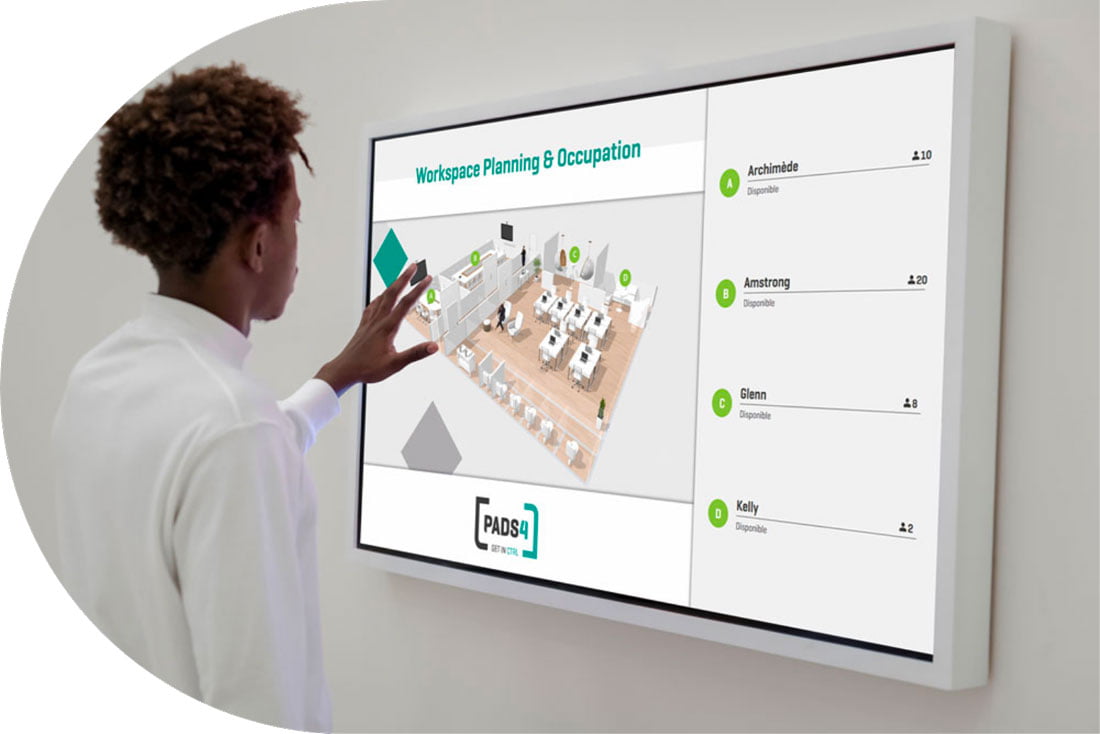
Interactive Wayfinding: More Than Just Directions
Interactive wayfinding software goes beyond simple directional guidance to offer an engaging experience. Users can interact with touchscreen kiosks or mobile apps to discover shops, schedule reminders, or even get updates on events happening around them. This level of interaction significantly improves user engagement and satisfaction.
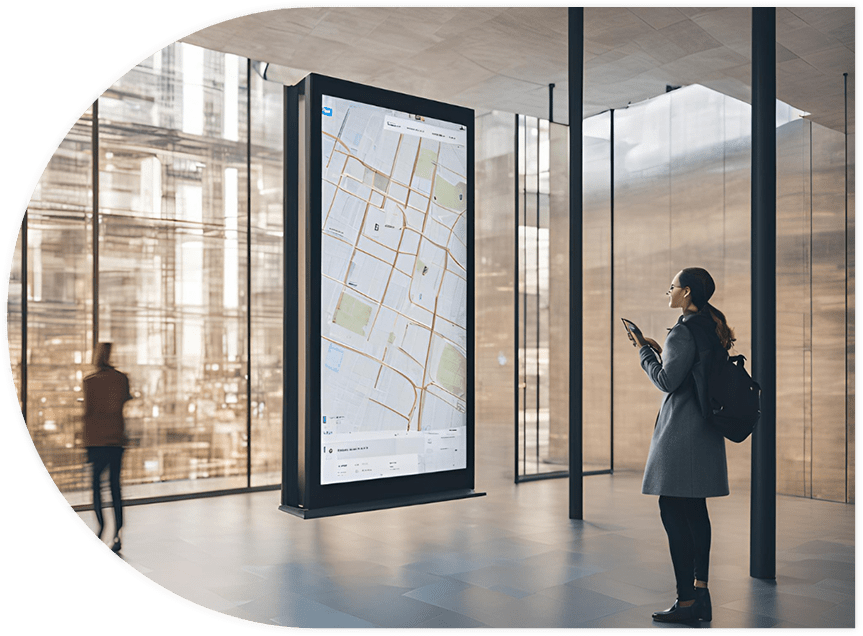
Key Features That Define Digital Wayfinding Systems
Digital wayfinding encompasses various features such as dynamic mapping, real-time updates, and accessibility options compliant with the Americans with Disabilities Act (ADA). Another standout feature is its integration capability with existing digital infrastructures like kiosks and digital signage, making it a versatile tool for any organization.

Seamless Integration and Customization of Wayfinding Solutions
Crafting the Perfect User Interface for Interactive Wayfinding
The design of interactive wayfinding solutions focuses on simplicity and efficiency. The goal is to create an interface that is both intuitive and aesthetically pleasing, reducing the cognitive load on users while ensuring they find their path effortlessly.
Tailored Experiences Through Customization
Customization is a key component in digital wayfinding projects. Whether it’s adapting the visual design to match the brand identity or incorporating specific features like multi-language support, customization allows organizations to tailor the experience to their exact needs.
Transformative Real-Life Implementations of Wayfinding Technologies
From bustling airports like Atlanta Hartsfield-Jackson to innovative educational campuses, real-life examples abound where interactive wayfinding has revolutionized navigation. These implementations show significant improvements in traffic flow, visitor satisfaction, and overall operational efficiency.
Interested in PADS4 Platform ?
User-Centric Enhancements in Digital Wayfinding Platforms
Leveraging Technology to Elevate Navigation Systems
The incorporation of advanced technologies such as AI and machine learning into wayfinding solutions enables more personalized user experiences. These technologies help predict routes based on crowd data and personal preferences, making navigation smoother and more intuitive.

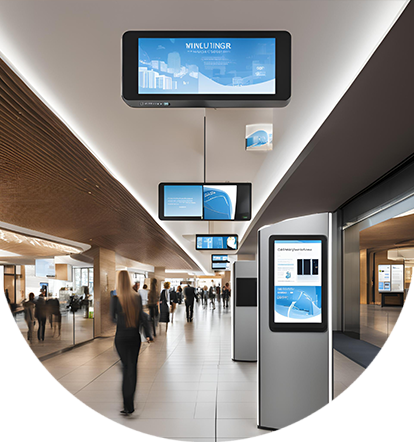
Synergy Between Digital Signage and Interactive Wayfinding
Digital signage, when synchronized with interactive wayfinding systems, creates a seamless informational network that guides visitors while also serving as a platform for digital advertising. This integration enhances the visibility of promotional content and increases user engagement across the venue.
The Future Is Now: Emerging Trends in Digital Wayfinding Technology
New advancements such as augmented reality (AR) are setting the stage for the next generation of wayfinding solutions. Imagine pointing your smartphone at a directory and seeing your route visually mapped out in 3D space – this could soon be an everyday reality thanks to continuous innovations in digital wayfinding technology.
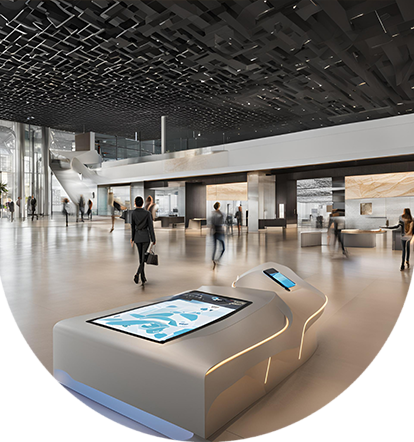
What is digital wayfinding and how does it work?
Digital wayfinding is a system that uses digital displays and interactive technologies to guide people through physical spaces. It works by providing real-time directions, maps, and information through touchscreens, kiosks, and mobile devices, making navigation easier and more efficient.
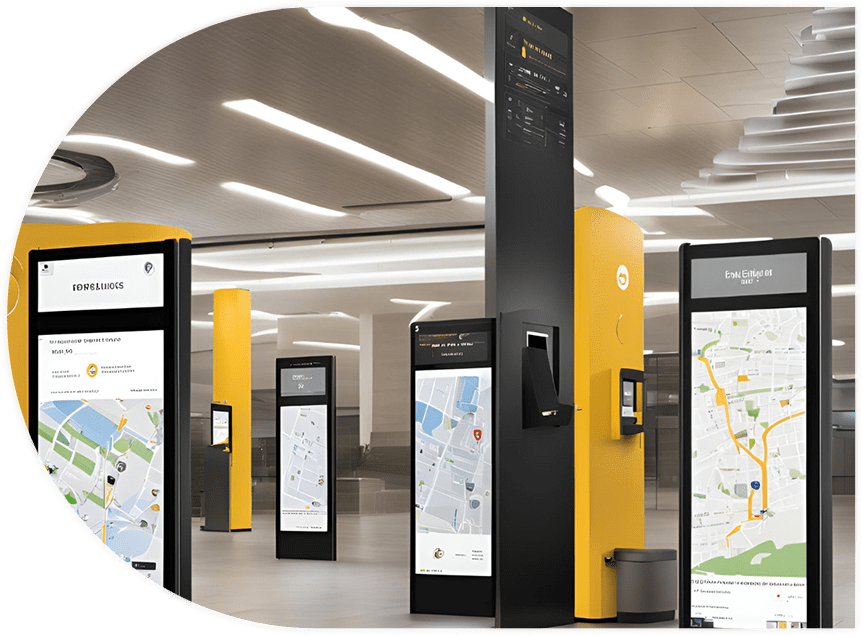
What are the benefits of interactive digital wayfinding for businesses and visitors?
Interactive digital wayfinding offers numerous benefits, including improved visitor experience, reduced confusion, and decreased reliance on staff for directions. It also enhances accessibility, provides up-to-date information, and can be customized to fit the specific needs of different businesses and locations.
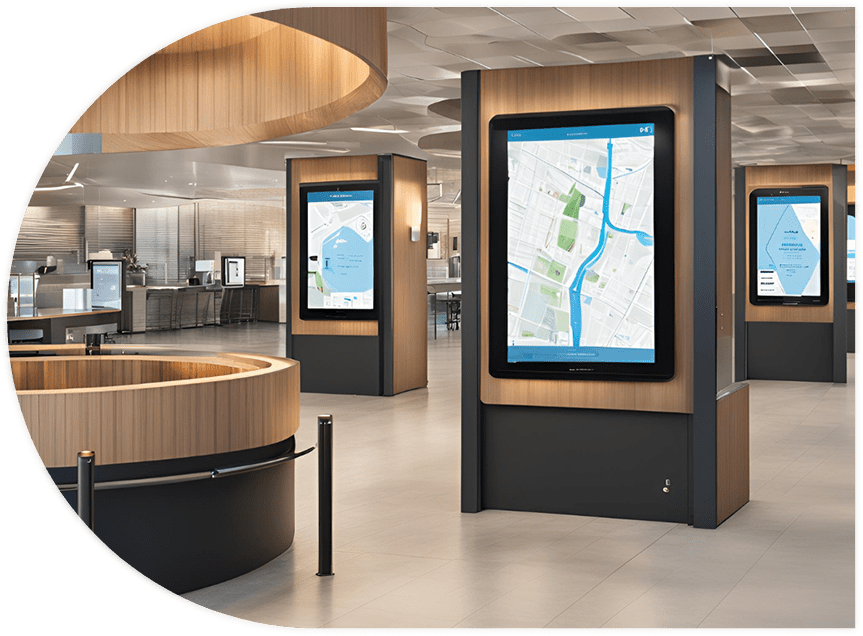
Can interactive digital wayfinding be customized for different environments?
Yes, interactive digital wayfinding systems can be customized to suit various environments such as shopping malls, hospitals, universities, airports, and corporate offices. Customization options include branding, specific route mapping, language options, and integration with other digital services.
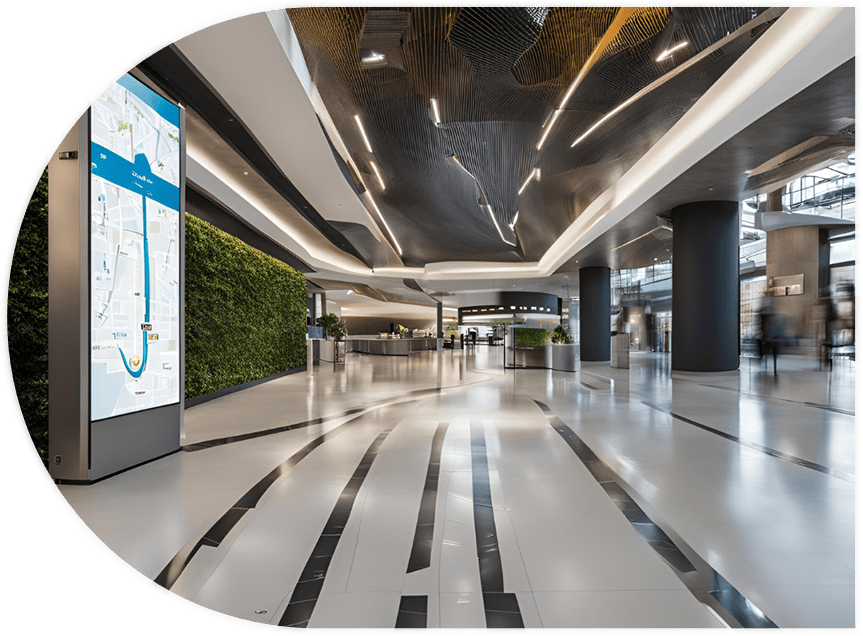
How does interactive digital wayfinding improve accessibility for all users?
Interactive digital wayfinding improves accessibility by offering features such as audio guidance, multiple language options, and easy-to-read visual displays. It ensures that all users, including those with disabilities, can navigate spaces independently and efficiently.
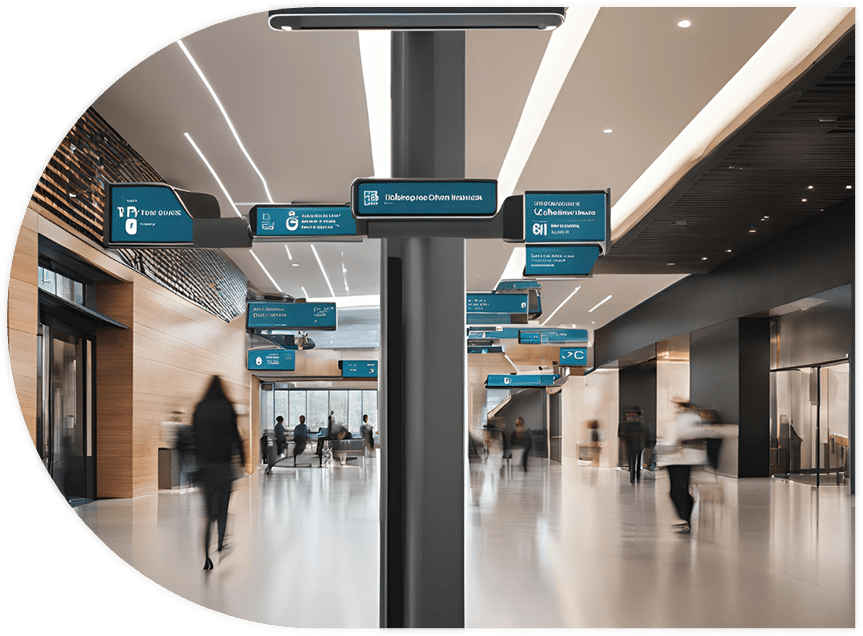
What are the key features to look for in an interactive digital wayfinding system?
Key features to look for include user-friendly interfaces, real-time updates, integration with mobile devices, analytics and reporting tools, customizable content, multi-language support, and robust technical support. These features ensure the system is effective, reliable, and adaptable to different needs.
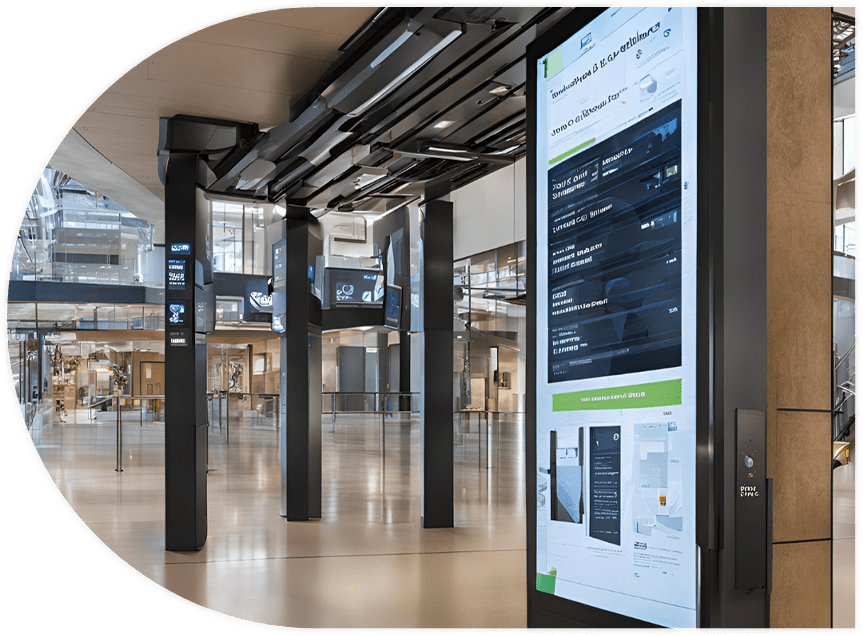
How can businesses implement and maintain an interactive digital wayfinding system?
To implement an interactive digital wayfinding system, businesses should conduct a needs assessment, choose the right technology provider, and ensure proper installation and integration. Maintenance involves regular updates, monitoring system performance, and providing training for staff to manage the system effectively.
